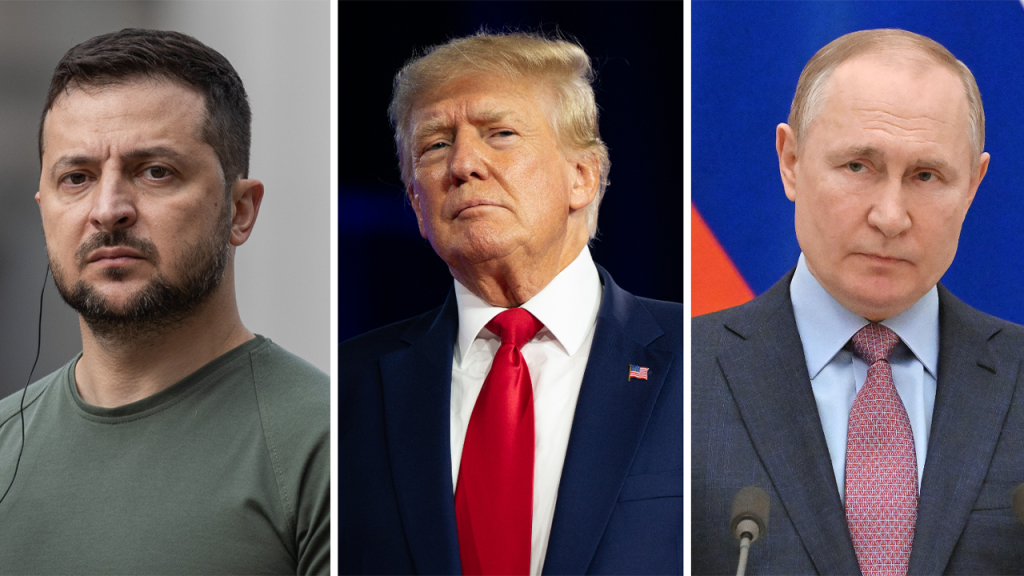Peace negotiations aimed at resolving the ongoing conflict in Ukraine are currently in progress in Saudi Arabia, drawing the attention of global leaders and media alike. U.S. and Russian delegations have convened to discuss the potential for a ceasefire, outlined by recent meetings that include representatives from both nations. While optimism exists surrounding the discussions, serious challenges remain, as evidenced by a major drone attack in Ukraine just prior to the talks.
| Article Subheadings |
|---|
| 1) Recent Developments in Peace Talks |
| 2) Key Figures in the Negotiations |
| 3) The Ceasefire Agenda |
| 4) Challenges and Obstacles to Peace |
| 5) Implications of Ongoing Conflict |
Recent Developments in Peace Talks
The peace talks in Saudi Arabia represent a significant diplomatic effort to end the violence stemming from the long-standing conflict in Ukraine. Commencing on Monday, these discussions follow what was described as a “quite useful” meeting between Ukrainian and American delegations, as announced by Volodymyr Zelenskyy, the President of Ukraine. He expressed optimism about the ongoing diplomatic efforts but emphasized the need for concrete actions to halt the conflict. According to him, it is imperative for Russian President Vladimir Putin to be compelled to issue a definitive order to cease hostilities. This call for action highlights the complex dynamics of the talks as well as the underlying tensions that continue to drive the conflict.
Key Figures in the Negotiations
Leading the U.S. delegation are notable figures including Andrew Peek, a senior director at the National Security Council, and Michael Anton, the director of policy planning at the State Department. These officials are expected to engage with their Russian counterparts, which include Grigory Karasin, who heads the Foreign Affairs Committee in the Russian upper house of parliament, and Sergei Beseda, an advisor to the leader of Russia’s Federal Security Service. The composition of both delegations emphasizes the high-level serious approach to negotiations and the shared goal of reaching a sustainable agreement amidst ongoing hostilities. Each delegation comes to the table with not just national interests, but also international ramifications that could define regional stability for years to come.
The Ceasefire Agenda
Reports suggest that the focus of the negotiations will be on establishing a ceasefire in the Black Sea region, an area that has been central to tensions between the two nations. According to Mike Waltz, the U.S. National Security Advisor, the initial phase of talks aims to tackle fundamental issues such as the verification of peace conditions, the deployment of peacekeeping forces, and territorial claims. The discussions are expected to be intricate and multifaceted, delving into various aspects of demilitarization and ensuring safety for maritime operations. The progress made in these discussions will be critical, as cessation of hostilities here may provide a stepping stone towards broader dialogue addressing the conflict at large.
Challenges and Obstacles to Peace
Despite the hopeful atmosphere surrounding the talks, significant challenges stand in the way of achieving a lasting peace. Just hours before the negotiations began, a large-scale drone attack by Russian forces targeted Kyiv, underscoring the precarious nature of the situation. Such military actions not only complicate diplomatic efforts but also serve as a stark reminder of the complex realities on the ground which negotiators must confront. The ongoing violence has widespread implications for food security, regional stability, and humanitarian crises within Ukraine, influencing the stakes of these negotiations. Insight from various analysts suggests that any significant progress will require not only dialogue but also tangible steps to de-escalate military confrontations.
Implications of Ongoing Conflict
The broader implications of the Ukraine conflict extend far beyond the immediate region, impacting global politics, security architectures, and economic relations. The conflict serves as a critical test for international alliances and treaties, particularly regarding responses to aggressive military actions by state actors. Experts note that the resolution of these negotiations must address not just the present crisis but also set a framework for preventing future conflicts. The outcomes of the peace talks could shape the geopolitical landscape, influencing diplomatic ties not only between the U.S. and Russia but also how these powers engage with other nations around the world.
| No. | Key Points |
|---|---|
| 1 | Peace talks are underway in Saudi Arabia aimed at resolving the Ukraine conflict. |
| 2 | U.S. and Russian delegations are led by high-profile national security officials. |
| 3 | The discussion will focus on establishing a ceasefire in the Black Sea region. |
| 4 | Concerns about recent military actions complicate peace negotiations. |
| 5 | The conflict has far-reaching implications for international security and diplomacy. |
Summary
The ongoing negotiations in Saudi Arabia serve as a pivotal moment in the quest for peace in Ukraine, reflecting a complex interplay of diplomatic efforts and military realities. While the foundational elements for dialogue appear to be in place, the deep-rooted challenges underscore the arduous journey ahead towards achieving a comprehensive resolution. The outcomes of these discussions will likely influence the geopolitical landscape well beyond the borders of Ukraine, making these talks a focal point for analysts and leaders worldwide.
Frequently Asked Questions
Question: What is the main goal of the peace talks in Saudi Arabia?
The primary goal is to establish a ceasefire in the ongoing conflict in Ukraine and to set the groundwork for a lasting peace agreement between U.S. and Russian delegations.
Question: Who are the main representatives in the U.S. delegation?
The U.S. delegation is led by Andrew Peek from the National Security Council and Michael Anton from the State Department.
Question: What recent event has complicated the peace negotiations?
A significant drone attack on Kyiv and other major cities in Ukraine, which took place just before the negotiations, has raised concerns about the feasibility of achieving lasting peace.


